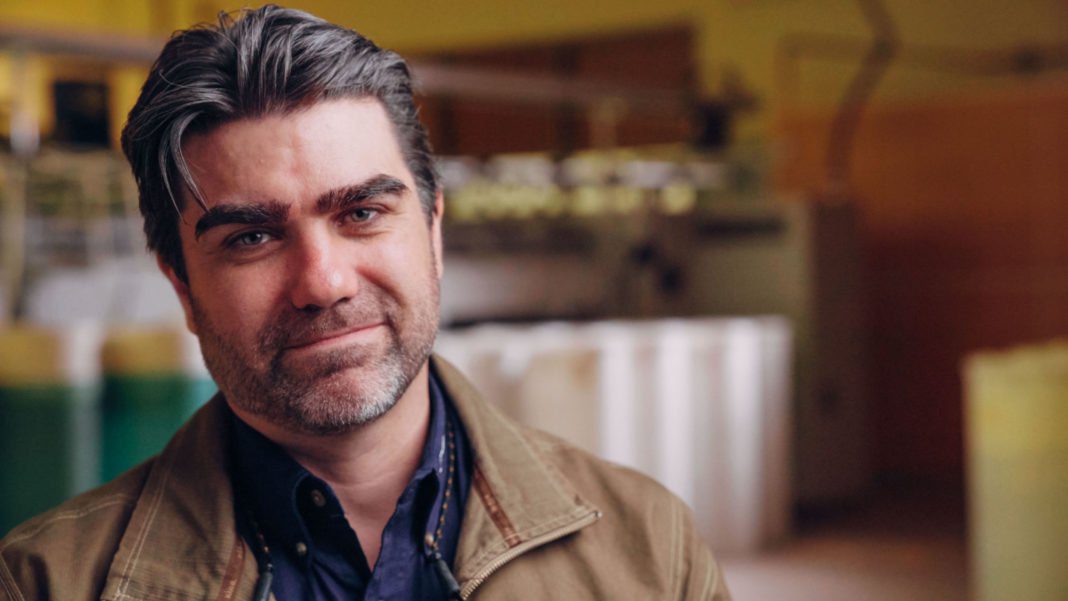Here we are again with our ‘Monthly interview’. Sorry for the absence of the last few months but it is not always easy to find the availability of the guests at the right time. In fact, I thank very much Roian Atwood, Wrangler’s Director of Sustainability, for being our guest and above all having done so on time.
The presence of Roian today is the ideal continuation of the post that last month we did on the new Indigood Foam-Dye technology by Wrangler, hat eliminates 100% of water in the dyeing phase and consequently also the waste water, also reducing energy consumption and energy waste by more than 60% compared to the conventional dyeing process. Roian has explained it better and told us about Wrangler’s commitment to sustainability.
So Roian, what is the role of a Director of Sustainability in a company like Wrangler? I mean, practically?
I run the small but mighty Global Sustainable Business team at Wrangler, which works to make improvements across our entire business. This ranges from decisions deep within the supply chain like sourcing sustainable cotton all the way through to product campaigns. My role is a combination of strategy development, project management and stakeholder engagement. It’s different every day, as you can imagine; I am boots in the field in the morning and working in the boardroom with senior leaders come afternoon.
In short, a multi-faceted job! Since in this blog we talked recently about Indigo Foam-Dye, I’d like you to explain to us what exactly it consists of? How does the foam work?
Designed to be the cleanest, most efficient technology for indigo dyeing, Foam Dye fundamentally changes the way the indigo is applied to yarn in denim manufacturing. This revolutionary process uses a foaming agent to suspend the indigo dye and process chemicals, entirely replacing the traditional water vats and chemical vats which thereby significantly reduces the physical footprint of conventional indigo dyeing. The foam dye process is the most sustainable way to dye denim, virtually eliminating the water used in the dyeing process and using 60% less energy than conventional dyeing systems.

One of the phase of Foam-Dye process – courtesy of Wrangler
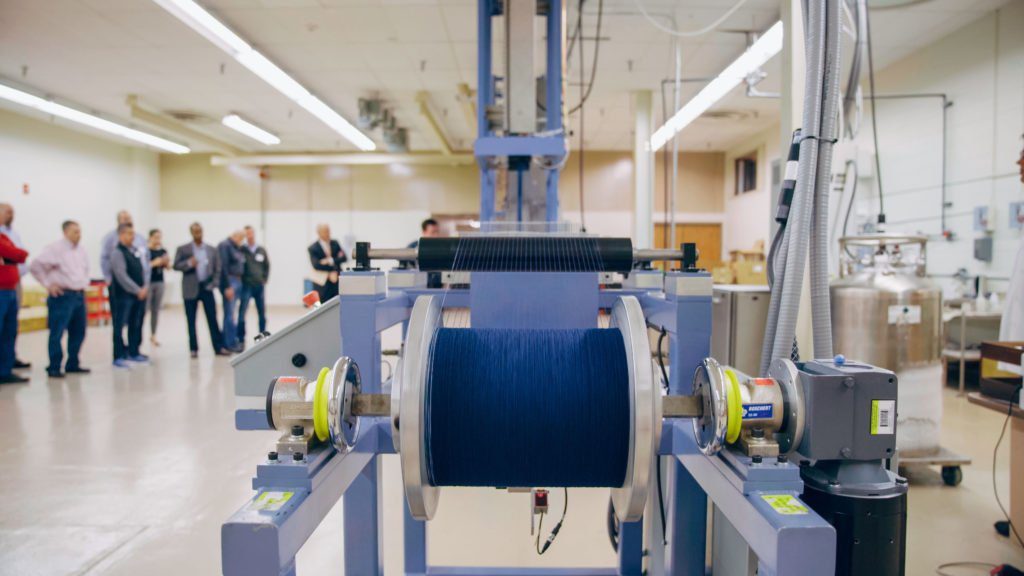
One of the phase of Foam-Dye process- courtesy of Wrangler
Has this technology been Wrangler’s first step towards sustainability or have you already done other things? If other things, what and when?
Wrangler has been working towards sustainability for a long time. In the early 2000s, we launched our water and energy savings platforms. More recently, we announced sustainability goals around water (to save 5.5 billion liters at our internal manufacturing by 2020), chemistry (to use 100% preferred chemistry throughout our supply chain by 2020), cotton (to source 100% sustainable cotton by 2025) and energy (to be powered by 100% renewable energy by 2025). To learn more about our sustainability initiatives, please click here.
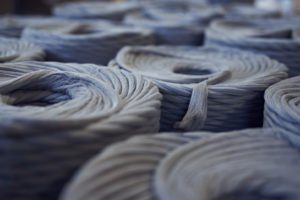

So many denim companies are changing their production in favor of less polluting methods; do you think it will be possible to produce a pair of jeans in a totally ecological way in the future?
Yes! The industry has been making a lot of incremental steps toward sustainability over the past few decades and with a few more revolutionary innovations in addition to foam dye, I look forward to wearing more and more sustainable jeans. The apparel industry needs to operate with a sense of urgency to solve for global challenges. There is no “away” and no “tomorrow.” There is no faking it.
As Sustainability Director of a major brand, what transformation are you witnessing in the sector, not only of denim but also of fashion in general?
More and more consumers are interested in who made their clothes and where they came from; they’re demanding sustainable products and they don’t want to pay extra. At Wrangler, we’re responding with initiatives like Indigood and our Rooted Collection, which can trace the cotton in each jean back to the farmers who grew it. It’s our mission to continue to make the durable, fashionable, affordable products you love while working to shrink each product’s environmental and social footprint.

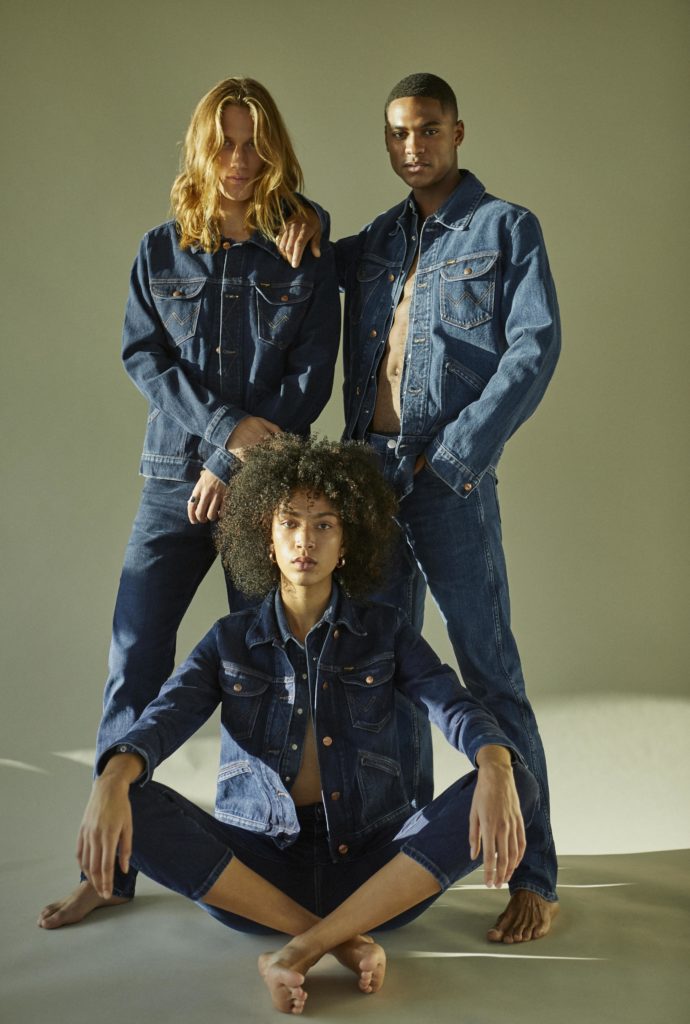

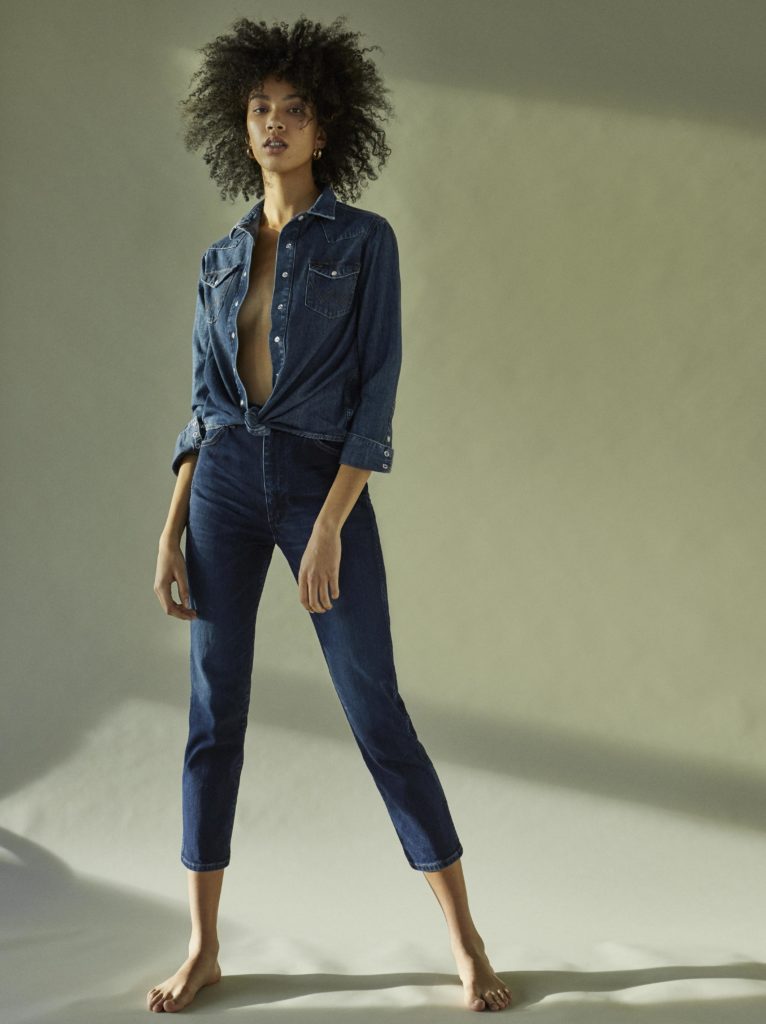
Indigo Foam-Dye collection – courtesy of Wrangler 

Thanks to Roian we understood not only what the Director of Sustainability does in a company like Wrangler but also what are the steps and commitments that can and must be taken to make an industry like denim less impactful. So thanks Roian and thanks Wrangler again 🙏🏻
The appointment with the Monthly Interview comes back in September, after the August break. See you soon, my eco-readers!


![Mono[PA6] by Freitag, a prova di economia circolare](https://eco-a-porter.com/wp-content/uploads/2024/05/freitag_monopa6_hero_master_16zu9_fin_01.2_0-218x150.jpg)







